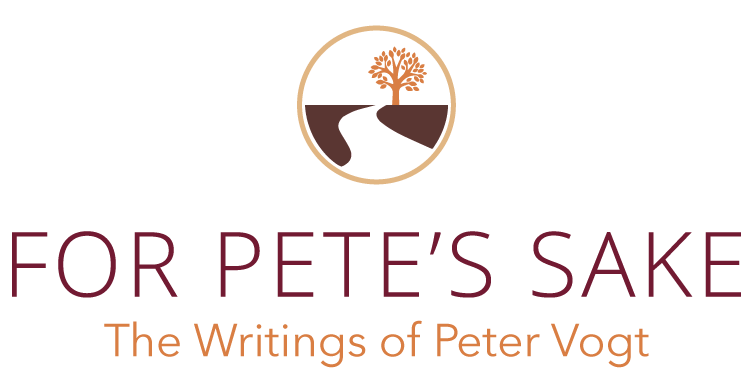What Will People Think? That’s What I Need to Stop Thinking – for My Sake and Theirs
I have gone through most of my life saying, to myself and others, that I don’t really care what people think of me or what I do or what I say or what I believe. That I don’t worry about it.
Turns out it’s a load of crap. My own thinking and my own actions completely upend the claim.
Just admitting this is oddly liberating and hopeful — like I’m finally cracking open a decades-long mystery and getting ready to do something good about it.
But first the bad.
The other day, the counselor I work with told me that we humans have been shown to think 30,000 to 40,000 thoughts every single day. I wouldn’t be surprised if a fourth of mine do in fact involve me wondering what other people think of me or what I do or what I say or what I believe.
The list is seemingly endless.
I wonder what my lovely wife Adrianne will think of what I’ve done in my work or at home today, or of what I’m doing with and for and about our four lovely kids, or even of what I’ve decided to make for dinner.
I wonder what our four lovely kids will think of what I’ve done in my work or at home today, or of what I’m doing with and for and about them, or even, you guessed it, of what I’ve decided to make for dinner.
I wonder what people think of my writing — including (and perhaps especially) this very piece. Do they think my stuff is any good or helpful to them or anyone else in any meaningful way? What if they think it’s awful and perhaps even harmful somehow?
I especially wonder what God thinks of me. I wonder if God thinks of me, first of all, and then I wonder how God really sees me.
All this wondering — unnecessary and unjustified, I might add — is incredibly draining, not to mention categorically unhelpful. I don’t recommend it as a life strategy.
But I can’t seem to stop it. Yet. Even when I know, intellectually, that most of the time other people aren’t even thinking about me — or what I do or what I say or what I believe — at all. Somehow I’m still prone to imagining them doing it as I go about the daily business of deciding what to be and what to do and what to say and what to believe.
Just a few minutes ago, I turned down the technician’s recommendation for a new air filter when I was getting the car’s oil changed. “He’ll probably think I’m stupid” went stomping through my head. Sadly, if I had gone along with the idea, I’d have been apt to think that the technician found me stupid for falling for the bait.
Like I said: This is not a good life strategy. It hurts me because it keeps me guessing, constantly, and for no reason to boot. It hurts the people around me, too — especially those closest to me — because they’re constantly being guessed about for no reason, and usually wrongly. It’s harmful all around.
What to do about it? Well, the counseling helps. So do my almost-daily runs. I pray, too, in my own way (“Dear God: Please make it stop”), and earlier today I emailed a local acupuncturist to see if she might also be able to help me stop this tail chasing. Especially if, as my counselor wonders, something physiological is at work and my brain is simply clogged or stuck in certain circumstances.
I have a big bag of tricks at my disposal for this challenge, and I’ll need to use more of them. But the true trick in solving this problem — and the irony — is that the only way my worries will ever stop is if/when I learn to be my own self-validator. Somehow, I really do need to get to the point where I’m not worrying about what people think of me or what I do or what I say or what I believe. That means not relying on external feedback as a decision-making barometer or, even more critically, as a measure of self-worth. It means emphasizing the “self” in that term, self-worth. It means being able to hug myself, pat my own self on the back, acknowledge myself and my own accomplishments, take care of myself, and have that be enough.
I have a feeling this is going to take a while. It took me 48 years to get here, after all. I have a lot of learning to do. And unlearning.
Somehow, though, simply sharing the struggle helps in and of itself. It’s as though I’m exposing the secret before it exposes me, thereby taking some of its power away.
Still: I wonder what people will think.
There it goes again. Thought number 21,417 for the day, perhaps.
My nemesis in life is faith, trust without a net. And the problem at hand, naturally, is nothing more than a question of faith, trust without a net. It does and always will boil down to that and that alone.
I believe, in my heart of hearts — way deep down — that I can get there. If I didn’t, I wouldn’t keep trying.
But man: It’s frustrating. No matter what people think.

I’m a writer. An essayist, to be more exact. I tell stories here—true stories, from my own life, in hopes they will make a positive difference in yours.
I share laughs and tears, insights and observations, frustrations and realizations, relying all the while on the storytelling wisdom of Julia Cameron, author of The Right to Write.
It is a great paradox that the more personal, focused, and specific your writing becomes, the more universally it communicates.

Terrific post, Pete. That’s what I’m thinking about you right now. However, I must say that, contrary to what you suppose, I do think about you. Frequently. Mostly I think about how much I miss our chats. Isn’t there a Skype solution for that?